Ten water-rich foods to help you stay hydrated
Did you know that roughly two-thirds of your body is made up of water? So, it’s important you stay well hydrated. But it’s not only drinks that can help you to maintain healthy fluid levels.
Lots of fruit and vegetables are also great sources of water. In fact, around a fifth of your daily fluid intake comes from the foods you eat. Here, I'll share 10 water-rich fruit and vegetables to consider including in your diet.
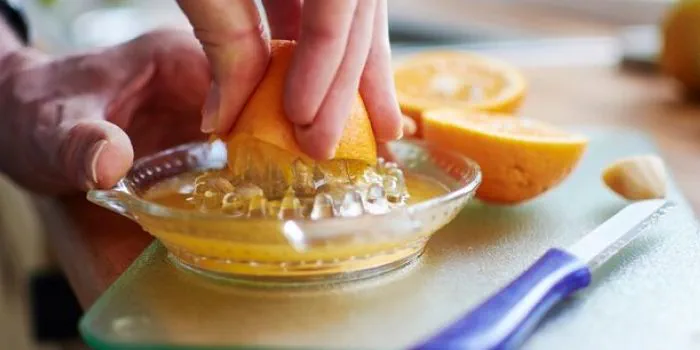
Which food is best for hydration?
In addition to drinking enough water, you can increase your fluid intake by consuming plenty of water rich foods. These include the following fruits and vegetables.
Cucumber, 96% water
Cucumbers are made up of around 96% water – that’s the highest water content of any food. They’re also low in calories, and a source of vitamins and fibre.
Tip: Add cucumber to your salads, snack on cucumber vegetable sticks with hummus or blend cucumber with mint, lime and water to make a refreshing drink.
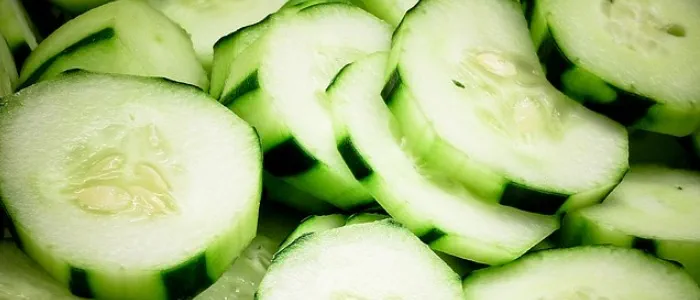
Tomatoes, 95% water
Tomatoes are made up of about 95% water. Whether you enjoy small sweet cherry tomatoes, large juicy beef tomatoes or prefer your tomatoes on the vine – there’s a huge variety to choose from. Tomatoes are also a good source of Vitamin A, which is important for keeping your skin, eyes, and immune system healthy.
Tip: Add tomato slices to a sandwich, salads or scramble them into eggs. Or make your own homemade pasta sauce by sauteeing tomatoes with garlic and herbs. You can then blend and freeze them for another day.
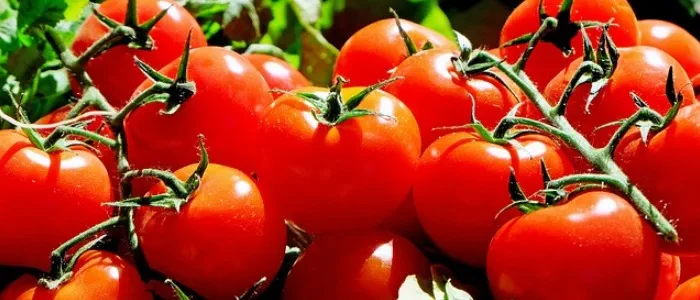
Spinach, 93% water
Spinach is made up of around 93% water, so it's good for hydration. Spinach is also a good source of iron. Iron is essential for helping to transport oxygen around your body, and for keeping your immune system healthy.
Tip: Use spinach as the base of a fresh summer salad or add a handful to your smoothies. Make your own spinach and basil pesto and freeze it in ice cube trays ready to add to wholemeal pasta dishes. You can also buy bags of frozen spinach which are perfect for adding to soups, chillis and casseroles.
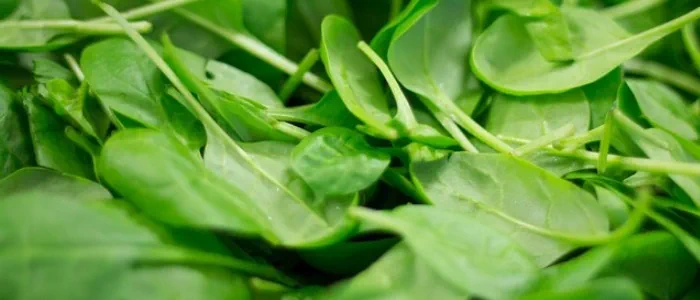
Mushrooms, 92% water
Mushrooms are made up of roughly 92% water. They’re also a good source of vitamin B2 (riboflavin), which is important for your skin and nervous system. Vitamin B2 also helps to reduce tiredness and releases energy from the food you eat.
Tip: Fill two large Portobello mushrooms with chopped tomatoes and a sprinkling of low-fat cheese. Then cook in the oven to create a delicious pizza alternative with a rich meaty flavour. You can also add chopped mushrooms to Bolognese, chillis, soups, stews and casseroles.
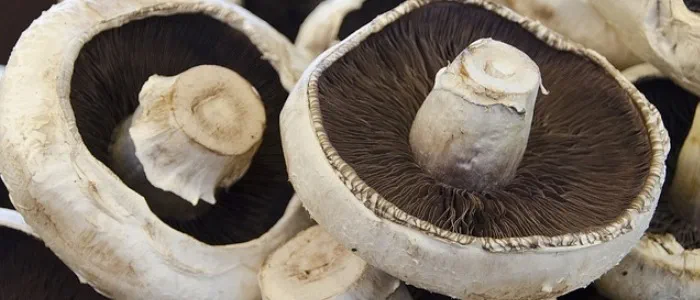
Yellow melon, 91% water
Yellow melons - like the honeydew variety, are made up of around 91% water. Melons are also low in calories and sugar, and a good source of potassium. Potassium helps to keep your blood pressure healthy and your nerves and muscles in good working order.
Tip: Cut a melon into triangles and top with berries to make melon pizza slices or make colourful fruit kebabs using different varieties of melons.
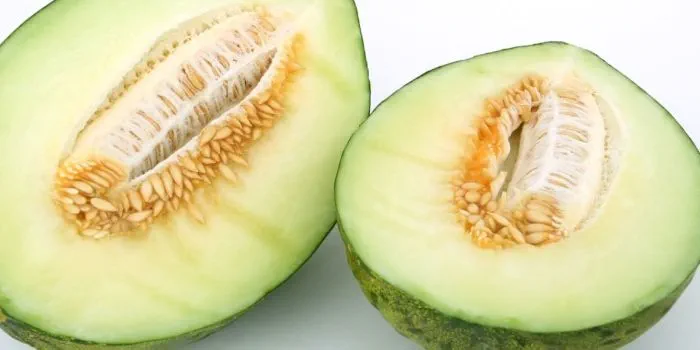
Broccoli, 90% water
If you’re a fan of broccoli, you’ll be glad to hear that these florets are made up of around 90% water. Broccoli also contains lots of important nutrients, including vitamin K, vitamin A, iron, calcium, and folic acid.
Tip: Try roasting broccoli with flaked almonds and sesame oil for a delicious nutty flavour. Or make a batch of warming broccoli and cheddar soup.
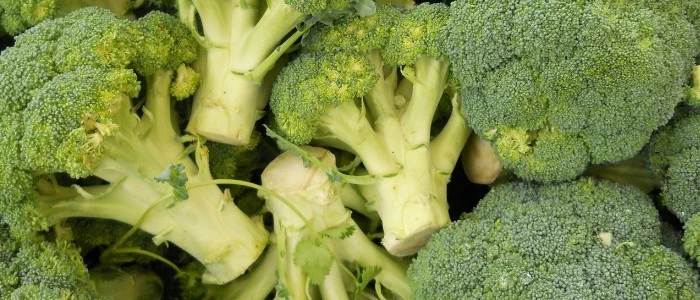
Brussel sprouts, 86% water
Love them or hate them, these cruciferous vegetables have an estimated 86% water. Brussel sprouts are a great source of folic acid (folate). This is essential for your body to make red blood cells, and important for the development of babies during pregnancy. Folic acid also helps your immune system to work well and reduces tiredness.
Tip: Give your vegetable stir-fry an extra boost by adding Brussel sprouts to other traditional stir fry ingredients like peppers, Pak choi and beansprouts.
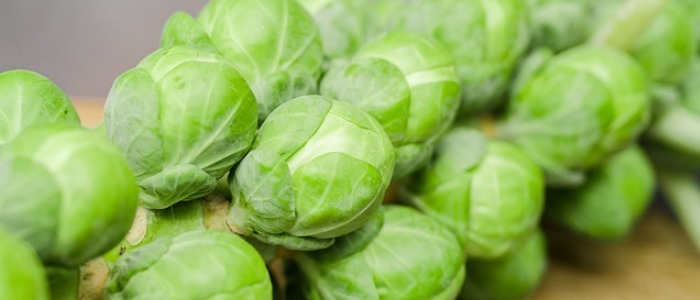
Oranges, 86% water
Oranges contain about 86% water. Citrus fruits like oranges, lemons, clementines and satsumas are good sources of vitamin C. Vitamin C is an antioxidant which helps look after your muscles, bones, tendons, arteries, and skin. It also plays a part in making sure your immune and nervous systems work properly and helps your body to absorb iron from food.
Tip: Peel and slice 2 oranges and 3 carrots and mix with rocket, avocado and olive oil to make a tangy carrot, orange and avocado salad. Or add orange segments to a fruit salad, and top with yoghurt and seeds. Don’t forget – one small glass of orange juice (150ml) also counts as one of your 5-a-day.
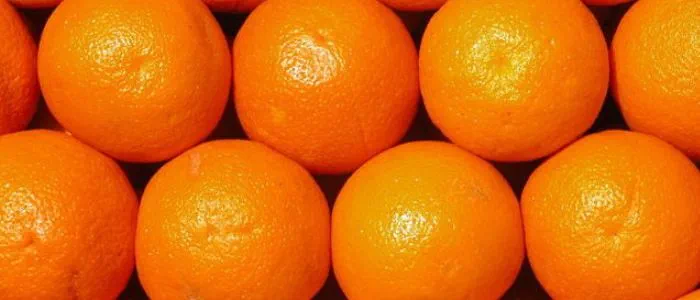
Apples, 86% water
Apples are made up of roughly 86% water. There are thousands of different varieties of apples grown all over the world. They’re also low in calories, and a source of vitamins, fibre, and antioxidants.
Tip: Cut an apple into slices and enjoy as a snack with a tablespoon of nut butter. Or stew them with cinnamon and pour them over porridge for a delicious warming breakfast.
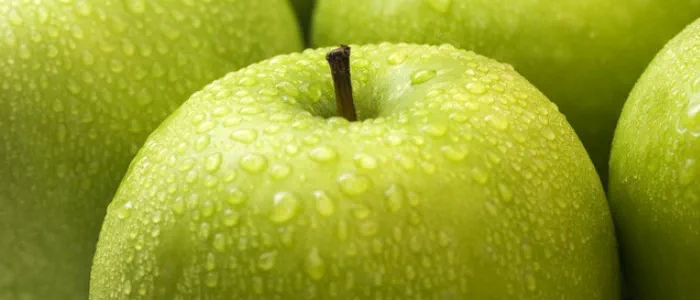
Blueberries, 85% water
Blueberries have become a popular health food in recent years. As well as being a source of fibre, vitamins and minerals, blueberries are also about 85% water. Berries are a great source of antioxidants, which help to protect your cells from being damaged.
Tip: Pour a handful of blueberries over your morning cereal or add them to your smoothies. You can also enjoy them with some yoghurt and a sprinkling of chopped nuts and seeds for a delicious dessert.
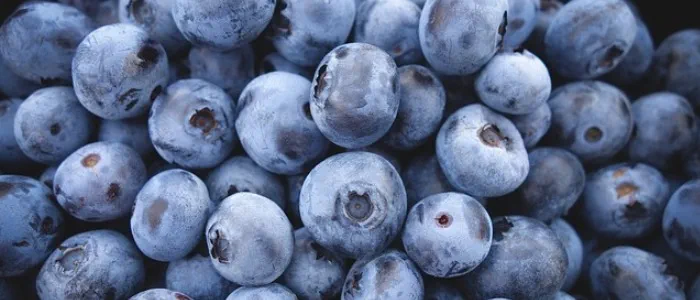
Do you know how healthy you truly are? Bupa health assessments give you a clear overview of your health and a view of any future health risks. You'll receive a personal lifestyle action plan with health goals to reach for a happier, healthier you.
-
Sources Sources
- Healthy hydration guide for adults and teenagers. British Nutrition Foundation. www.nutrition.org.uk, last reviewed October 2023
- Skin health: Food Fact Sheet. British Dietetic Association. www.bda.org.uk, reviewed April 2020
- Fluid (water and drinks): Food Fact Sheet. British Dietetic Association. www.bda.uk.com, last reviewed January 2023
- FoodData Central. US Department of Agriculture. fdc.nal.usda.gov, accessed 8 April 2024
- Nutrient analysis of fruit and vegetables. Department of Health. www.gov.uk, accessed 8 April 2024
- Micronutrients. Oxford handbook of nutrition and dietetics (3rd edition). Oxford Medicine Online. oxfordmedicine.com, published online April 2020
- Iron: Food Fact Sheet. British Dietetic Association. www.bda.uk.com, last reviewed April 2021
- Minerals and trace elements - Iron. British Nutrition Foundation. www.nutrition.org.uk, accessed 8 April 2024
- Exploring nutrients. British Nutrition Foundation. www.nutrition.org.uk, accessed 8 April 2024
- Minerals and trace elements - calcium. British Nutrition Foundation. www.nutrition.org.uk, accessed 8 April 2024
- Folic acid. British Dietetic Association. www.bda.uk.com, updated July 2023
About our health information
At Bupa we produce a wealth of free health information for you and your family. This is because we believe that trustworthy information is essential in helping you make better decisions about your health and wellbeing.
Our information has been awarded the PIF TICK for trustworthy health information. It also follows the principles of the The Information Standard.

More diet and nutrition articles
Did you find our advice helpful?
We’d love to hear what you think. Our short survey takes just a few minutes to complete and helps us to keep improving our healthy lifestyle articles.
Legal disclaimer
This information was published by Bupa's Health Content Team and is based on reputable sources of medical evidence. It has been reviewed by appropriate medical or clinical professionals and deemed accurate on the date of review. Photos are only for illustrative purposes and do not reflect every presentation of a condition.
Any information about a treatment or procedure is generic, and does not necessarily describe that treatment or procedure as delivered by Bupa or its associated providers.
The information contained on this page and in any third party websites referred to on this page is not intended nor implied to be a substitute for professional medical advice nor is it intended to be for medical diagnosis or treatment. Third party websites are not owned or controlled by Bupa and any individual may be able to access and post messages on them. Bupa is not responsible for the content or availability of these third party websites. We do not accept advertising on this page.






